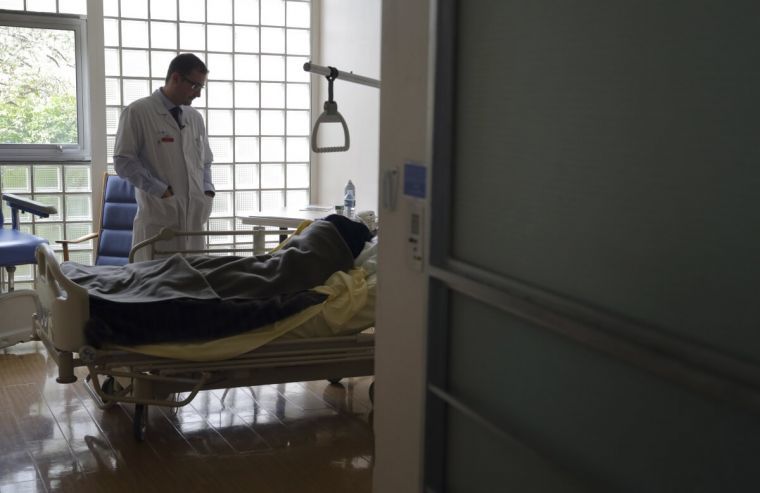

The Australian Christian Lobby has welcomed this morning's narrow defeat of the latest attempt to legalise assisted suicide.
"The all night debate in the South Australian Parliament has further highlighted that making euthanasia safe for society's most vulnerable is simply not possible," ACL Managing Director Lyle Shelton said, adding that the 4:30am parliamentary defeat of the Death with Dignity Bill in South Australia should draw a line under this long-running debate.
Mr Shelton said if campaigners for assisted suicide were to continue their crusade, there should be a proper national debate about the consequences for the vulnerable, including the mentally ill, before new bills were shopped around the States.
"This is an issue that should be resolved at a national level to avoid death tourism across state borders," he said.
"Most Australians are not aware of the latest data from Belgium which has revealed that mentally ill people are being euthanised."
Mr Shelton thanked Labor Speaker Michael Atkinson for his advocacy for the vulnerable and for using his casting vote to defeat the legislation.
"So called safeguards again were unable to convince a majority of Parliamentarians, as evidenced by the proponent of the bill, Duncan McFetridge MP's inability to address MP's concerns, throughout a night of vigorous questioning," Mr Shelton said.
Mr Shelton said this morning's vote, after an all night sitting, would come as a relief to the sick and vulnerable in aged care facilities, for whom the right to die, if legislated, would soon become the duty to die.
"The final bill was a cobbled together compromise where Mr McFetridge accepted any and all amendments throughout the night in a desperate bid to get any form of assisted suicide legislation over the line," Mr Shelton said.
"The version taken to a vote after 4:30am vote sought to legalise assisted suicide for people with a terminal medical condition where death is 'inevitable' within six months. There were no meaningful safeguards and Mr McFetridge was unable to convince a majority of his colleagues.
"Mr Chris Picton MP, who proposed the six months time frame, took comfort from the Oregon assisted suicide legislation. He described the six month time frame as a safeguard but lessons from Oregon are that safeguards there are illusory. In Oregon, patients with diabetes, hepatitis, and HIV received lethal drugs for assisted suicide.
"The Bill's proponents voted to have the debate continue through the night in an unseemly rush to pass a Bill that did not satisfy the requirements of South Australia's Australian Medical Association. The AMA said to MPs that doctors do not wish to be involved in killing their patients.
"Claims by proponents of the bill that it was possible to provide adequate safeguards to protect the aged and vulnerable were disingenuous and do not reflect what is occurring in jurisdictions where state-sanctioned suicide exists."
Mr Shelton urged those considering the one vote defeat of the bill to listen to international warnings and the opposition from the Australian Medical Association.
"We cannot ignore the growing alarm among doctors and mental-health professionals in Europe who are witnessing euthanasia being extended beyond the terminally ill and now being carried out on those with depression, mental illness or disabilities," Mr Shelton said.
Last month, the Washington Post revealed that the euthanasia of people with mental illnesses or cognitive disorders, including dementia was a common occurrence in Belgium and the Netherlands.
"Belgium and the Netherlands are held up as 'best practice' examples by euthanasia proponents such as Andrew Denton, but over time so-called safeguards had been whittled away," Mr Shelton said.
"Statistics coming from the Netherland and Belgium demonstrate state-sanctioned suicide is anything but safe."
A recent report from Belgium's Federal Commission on the Control and Evaluation of Euthanasia, and reported in the Washington Post, shows that the unthinkable was happening in that country; 3.1 per cent of all euthanasia cases in the period 2014-15 were for mental and behavioral disorders.
"If you follow the logic of euthanasia proponents, it is easy to see how safeguards are removed, if not immediately, then in the future," Mr Shelton said.
In Belgium, more than 20 per cent of non-terminally ill patients were administered lethal injections during the 2014-15, leading doctors in that country to call for a ban on euthanasia for the mentally ill.
In 2014 Belgium extended its laws to provide lethal injections to terminally ill children of any age.
In the Netherlands, 13 psychiatric patients were euthanised and a further 49 patients in the early stages of dementia were euthanised.
"As a just and compassionate society we can find better ways to deal with the suffering which do not draw us into providing state-sanctioned killing," Mr Shelton said.
Mr Shelton said the ACL and its supporters understood and supported the aim of making end of life as comfortable as possible for those suffering pain.
"While ACL understands and shares the desire to see people relieved of their pain, this can be better achieved by taking advantage of the tremendous medical advances in palliative care," Mr Shelton said.
"Palliative care is a more prudent and ethical way of ensuring a dignified death than public policy which is open to abuse and which unwittingly or wittingly puts pressure on the ill and vulnerable to end their lives.
"The ACL is committed to working with all parliamentarians to ensure they are informed of the consequences of introducing euthanasia laws which have a track record of failing individuals and the community." Mr Shelton said.